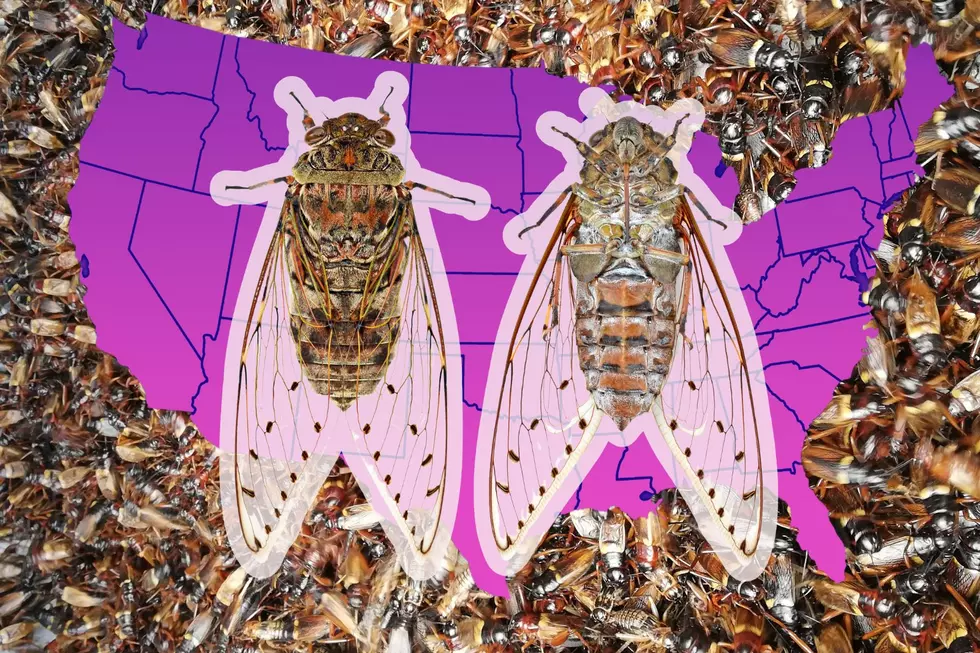
Why Don’t I Have Cicadas in My KY Yard But Nearby Friends Do?
The cicadas have arrived, and boy are they LOUD. I wonder what it would be like to have to deal with all that noise now that two broods have arrived in Kentucky to spread their "joy."
Just about deafening, right? Well, they also seem to fancy themselves as fashion accessories from time to time.
"Look at all my pet cicadas," said no one ever. (I'm guessing.)
While I have seen evidence of their invasion nearly everywhere I've gone since their arrival, I have seen ZERO evidence in my own yard. Just as it was the last time we had a cicada onslaught, I haven't seen any around the house. It wouldn't be so unusual if friends of mine who live MAYBE a quarter-mile away weren't being PLAGUED by the noisy little critters.
So I rolled the dice and searched "Why am I not getting cicadas in my yard?" While I did get a result that made sense, it still didn't answer my question. Three years ago, during the last "invasion," WUSA9-Washington DC posed the question "Why do cicadas go to certain homes and backyards, but not others?"
Their experts explained that cicadas are "patchy," meaning they can be in one yard but absent from another one just down the road. They also indicated if a property had been deforested in the last 17 years, cicadas probably wouldn't show up there.
But since there's a wooded area RIGHT next to our property, that explanation goes out the window.
Then something hit me. We have a LOT of cardinals in and around our yard, and, sure enough, they love to eat cicadas.
How about that? Leave it to Kentucky's official state bird to keep the cicadas at bay and the noise level down. It feels poetic somehow.
Personally, I'd like to thank them for making sure I don't wear a "cicada coat" when I leave for work in the morning.
LOOK: 20 of the biggest insects in the world
Gallery Credit: Andrea Vale
Quiz: Do you know your state insect?
Gallery Credit: Andrew Vale
More From WBKR-FM









